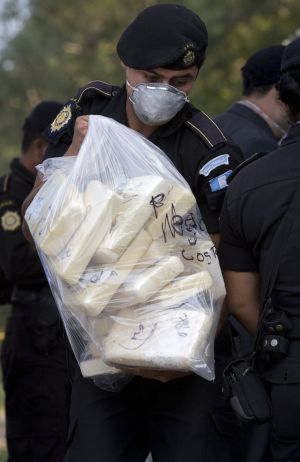Beating, non-stop work and 3,000 squats at a time... the chilling reality of Christian drug rehab centres in Guatemala

Most of the cocaine that ends up in the US goes through Guatemala, causing a surge in crack cocaine use, attended by a rise in Christian drug rehabilitation centres – some which lock people up against their will.
Collecting addicts from the street in "hunting parties", holding them against their will and forcing them to work, are just some of the questionable methods highlighted in a radio documentary by BBC reporter Linda Pressly.
The United Nations issued a joint statement in 2012 calling for an end to compulsory drug detention and rehabilitation centres. They argued for a more voluntary, consent-based approach, acknowledging that many of these centres violate the addicts' human rights.
But that hasn't prevented a proliferation of private rehabilitation centres in Guatemala in the absence of state-funded residential rehabilitation. These centres function without any controls or observation, and many of them started by Pentecostal churches.
In the absence of therapy or medicine, they employ aggressive methods – not just forcing people to stay in the centres, but punishing them into submission while they are there.
One former addict told Pressly: "I saw terrible things in that rehab – the owner used to beat up the girls. He would tie up the guys and roll them up like a taco in a piece of carpet, and leave them there for hours."
On average, 30 internees are cramped into a small, unsanitary space, where most 'inmates' are forced to sleep on the floor.
In one centre, a list of 35 rules and associated punishments was pinned on the wall. A lack of respect for religion, worship or the Bible faced the punishment of 3,500 squats, non-stop shifts for three days and bathroom duty for eight days. Humming was punishable by 2,000 squats.
Academics at the University of Toronto estimate that there are more people incarcerated in rehabilitation centres than are locked up in Christian rehabilitation centres than in Guatemalan prisons.
In the capital, Guatamala city, there has been an increase from only a few centres in the 1980s to at least 200.
Not all Christian rehabilitation centres employ these aggressive methods, but they are certainly becoming more widespread.
Those who support them argue that it is a lesser of two evils – the streets of Guatemala are not a safe place to be an addict.
"Now he's there, we have a bit more peace of mind - if he were in the street, anything could happen here in Guatemala," Victor Puiz, the brother of Carlos, an addict in forced rehabilitation told Pressly.
There is also the suggestion that these centres are used to generate income for pastors. Often occupying unused buildings and using the long-term inmates as staff, they have very low operating costs, and the families pay a monthly donation to the church pastors running the facilities.
The churches can, therefore, increase their income, as well as claiming to fulfil their Christian duty.
The International Drug Policy Commission said in its report in February: "access to evidence-based treatment programmes remains woefully inadequate across the hemisphere and forcing people to undergo rehabilitation – often in therapeutic communities that use religion rather than science to "treat" drug dependency – is disturbingly common."
But while those who promote these centres say that they rely on God to heal addictions, the methods they employ are clearly more than spiritual.











